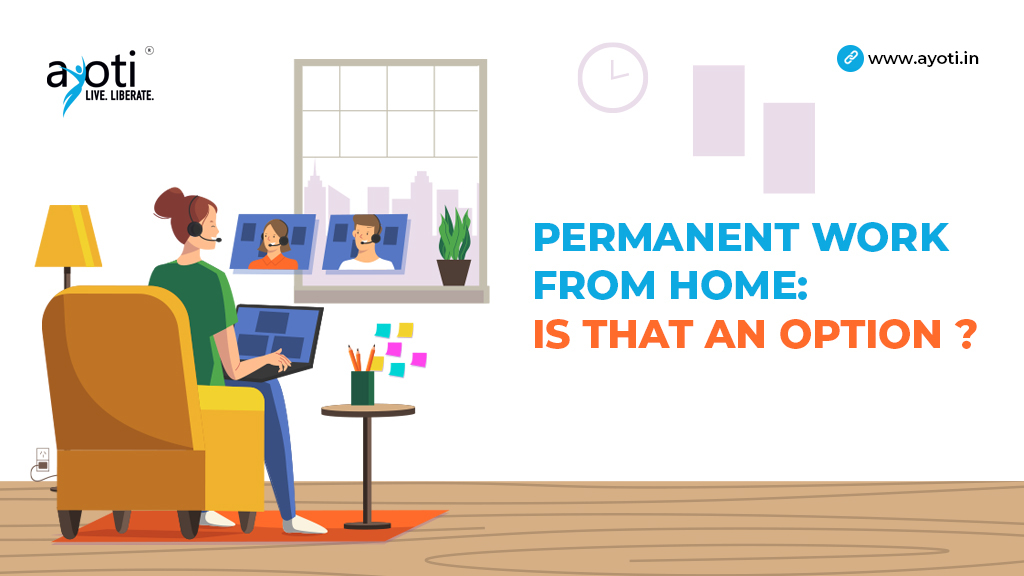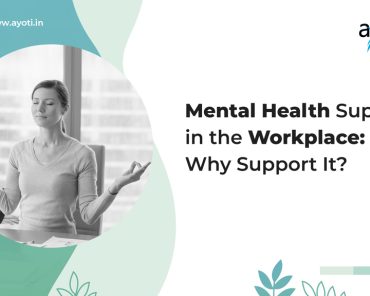By ayoti
Permanent work from home: Is that an option?

Despite Covid-19 instances decreasing, India Inc is continuing to offer remote working choices to personnel, and some businesses are even hiring for permanent work-from-home positions, according to a recent poll performed exclusively for ET by CIEL HR. According to the report, more than half of organisations allow employees to work remotely.
So, is permanent work from home an option? Not for all, especially for staff in the manufacturing companies. While some may challenge that social or team communication is lacking, technology and digitisation have helped people close regardless of the geographical distance.
Many companies verified that the flexible working style implemented in 2020 during the statewide lockdown to prevent the spread of the pandemic would be maintained in the long run. Some companies, such as Mondelez and Tata Steel, are looking to hire for permanent work-from-home (WFH) positions. Others, such as Maruti Suzuki, are either taking a location-agnostic strategy for certain roles or adopting a partial remote working framework, with employees coming into the office a couple of days a week in the long run.
Working from home throughout a global pandemic differs from working from home in normal circumstances, but it can still help you figure out if long-term work from home is right for you. If your company provides more flexibility in work options later, taking the time to think about the important factors can help you make an informed decision.
Things to consider while working from home
-
Expectations
First, setting realistic expectations depending on more normal conditions rather than your circumstances during a global epidemic will be beneficial. You might not have family, children, or roommates at home during working hours once social distancing limitations have been lifted. You might also have more freedom to get out of the house for lunch, errands, exercise, or social activities. When you’re not always worrying about safeguarding your health and the health of others around you, you might be in a better, more productive frame of mind.
-
Workspace
You should also think about your physical working environment. Consider where you’ll set up every day when deciding whether or not you’d like to work remotely in the long term. Do you have a comfy space to work at home, or would you need to seek a distant alternative, such as a local coffee shop or library? You should also consider whether you’ll be able to obtain all of the technical equipment you require, including items that may appear simple but can be challenging, such as high-speed internet. There may also be benefits at work that you don’t enjoy at home that will make you feel happier or more constructive.
-
Future Goals
After that, think about your five-year future goals. It’s possible that life events influenced your decision to work from home. For example, you might be intending to have children and want to spend more time at home, attempting to relocate closer to family, or looking for more inexpensive housing options outside of your office.
There’s also the possibility that you have professional plans that will influence your work-from-home preferences. For example, if you want to work in an industry or firm with opportunities centred in a particular geographic location but don’t want to live there, working remotely may be a viable option.
-
Budget
Working in an office versus working from home or remotely comes with distinct prices. If budget planning is crucial to you, estimating your expenses for both scenarios may be beneficial. Costs such as housing, utilities, transportation, and food can be evaluated to see whether one option will save you money in the long run.
While the above elements are a fantastic beginning point, it’s also vital to remember that the elements in your life, in particular, should be considered. True, we all have different priorities, ambitions, and personal and professional situations that will influence our actions differently.
The future of work
Many offices may operate differently once COVID-19 limits are lifted, influencing how you decide what’s best for you. More businesses are contemplating the “hotel” model, which includes fewer on-site incentives and policies that allow employees to work from home. If you’re unsure how your company will proceed, ask your boss or a human resources person for advice.
Companies are increasingly providing employees with more flexible options, so you may not have to pick between working from home and in an office. In any event, you’ll be better placed to boldly make the right decision for yourself if you can carefully balance the advantages and disadvantages of working remotely.




